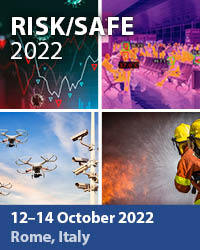Occupational Safety At The Nestlé Research Center
Price
Free (open access)
Transaction
Volume
94
Pages
7
Published
2007
Size
2,329 kb
Paper DOI
10.2495/SAFE070291
Copyright
WIT Press
Author(s)
A. Raemy, H. Germond, A. Berger & R. Badoud
Abstract
\“Safety is non negotiable” is the basic principle expressed by Peter Brabeck- Letmathe, CEO of Nestlé, the number one food company, in relation to safety throughout the entire organization. This principle obviously applies to products and operations as well as to occupational safety. Management is responsible for safety and defines guidelines based on legislation, official norms and corporate policy. It delegates the application of these guidelines to specialists, e.g. safety managers, safety animators and instructors, through a Safety Committee comprising delegates from all functions in the organization. The laboratories of the Nestlé Research Center are provided with the appropriate safety equipment. The pilot plant benefits from the support of engineers and specialized technicians from the workshop. Although some safety instructions and procedures are sometimes regarded as constraints by scientists and technicians, they are increasingly accepted and more rigorously applied thanks to the efficient support of safety animators. Keywords: safety, research, laboratories, pilot plant, workshop, working place analysis, biohazards, technologies, fires, explosions, accidents. 1 Introduction The basic principle expressed by Peter Brabeck-Letmathe, Chief Executive Officer of the world’s leading food company Nestlé, in relation to safety is: \“safety is non negotiable”. This obviously applies to all units in the organization, and particularly to manufacturing and R&D functions. Owing to its specific research activities in food science, nutrition, health, quality and safety, the Nestlé Research Center applies appropriate rules and organization as required by local legislation [1–3], industry standards and company policy.
Keywords
safety, research, laboratories, pilot plant, workshop, working place analysis, biohazards, technologies, fires, explosions, accidents.





